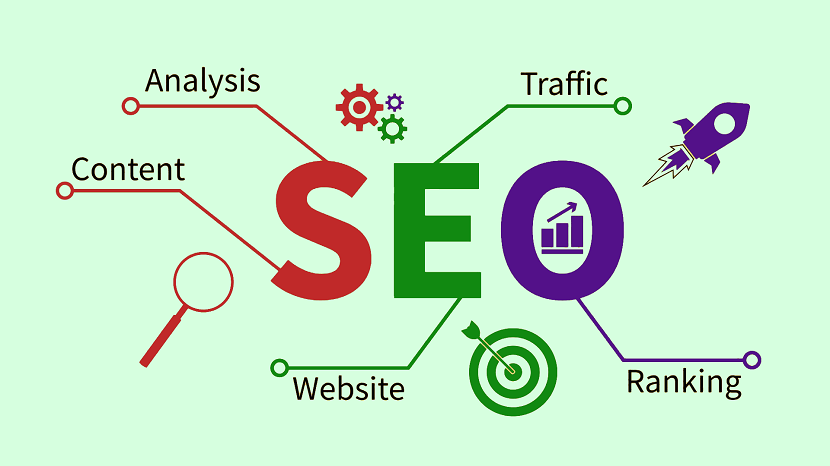SEO is at the forefront of digital marketing methods to boost website traffic and visibility. Businesses and website owners must learn SEO to stay competitive in the ever-changing internet. However, navigating SEO demands care and knowledge of frequent mistakes that can hurt a website’s ranking and performance.
This comprehensive guide will cover the top SEO blunders organizations and website owners should avoid staying at the top of search engine rankings. By avoiding these mistakes, you may boost your website’s visibility, traffic, and digital success.
1. Ignoring Mobile Optimization
With the rise of smartphones and mobile devices, websites must be mobile-friendly. Neglecting mobile optimization is a big mistake that can hurt a website’s SEO. Google ranks mobile-friendly websites higher in search results due to mobile-first indexing.
To avoid this mistake, make sure your website is responsive to different screen sizes and resolutions. Optimise images, use browser caching and reduce scripts to speed up pages. Your website’s mobile search rankings and user experience improve when you prioritize mobile SEO.
2: Ignoring Page Speed
User experience and search engine rankings depend on page speed. Slow-loading websites have higher bounce rates and decreased user engagement, hurting SEO. Website owners must prioritize speed optimization since search engines like Google rate websites by page speed.
Perform regular performance audits using Google PageSpeed Insights or GTmetrix to fix this issue. Image optimization, CSS and JavaScript minification, and browser caching speed up page loading. Page speed optimization boosts user experience and search engine rankings.
3. Neglecting Content Quality
SEO relies on content to attract and engage website visitors. High-quality, relevant content is often overlooked, hurting SEO. Informative, useful, and relevant material is prioritized by search engines.
Focus on original, engaging content that meets your audience’s requirements and interests to avoid this error. Use keyword research to find relevant themes and naturally include keywords in your writing. Update your material regularly to show search engines that your website is trustworthy.
4. Ignoring On-Page SEO
Website exposure and relevancy in search engine rankings depend on on-page SEO features. A website’s ranking can suffer if meta tags, title tags, and internal linking are ignored. These features tell search engines about your web pages’ content and context.
Optimize your website pages with title tags, meta descriptions, and header tags to avoid this mistake. Make your URLs concise, descriptive, and keyword-optimized. Internal linking improves crawlability and indexing by connecting relevant information. Search engine visibility and relevancy are improved via on-page SEO.
5. Keyword Stuffing
Black hat SEO tactics like keyword stuffing might get you penalized by search engines. Overusing unrelated or repetitive keywords hurts user experience and your website’s credibility.
Avoid this mistake by writing natural, informative, and user-friendly material. Use keywords strategically and naturally to add context and importance to your material. Prioritize user purpose and readability over keyword density to improve content quality and efficacy.
6. Ignoring Technical SEO
Technical SEO includes website optimization that affects crawlability, indexing, and search engine rankings. Technical SEO neglect can hurt a website’s search engine rankings. Broken links, duplicate material, and poor canonicalization can hurt SEO.
For this mistake, perform regular technical audits to find and fix website architecture and infrastructure concerns. To properly index your website’s pages and content, optimize your XML sitemap. Avoid search engine authority loss by consolidating duplicate material with canonical tags. Technical SEO optimizes website crawlability, indexing, and search engine exposure.
7. Underestimating Backlinks
Off-page SEO relies on backlinks from external websites to establish a website’s authority and credibility. Backlinks are crucial to search engine rankings, therefore disregarding a link-building plan might hurt a website.
Build high-quality, relevant backlinks from industry or niche authority websites to prevent this mistake. To get natural backlinks, invest in content marketing, guest blogging, and influencer collaborations. Avoid black hat SEO strategies like buying links or joining link schemes to avoid search engine penalties. Ethical and purposeful link-building boosts website authority, credibility, and search engine ranks.
8. Missing Local SEO Chances
Local SEO is crucial for businesses with physical presence or local service regions to reach their target market. SEO strategies include optimizing for location-based keywords, generating and optimizing Google My Business listings, and obtaining local directory citations to help boost a business’s local search rankings.
Use local keywords and phrases in your website’s content and meta tags to avoid this mistake. Make sure your business’s name, address, and phone number (NAP) are consistent across internet platforms and directories. Increase credibility and trustworthiness by encouraging satisfied customers to post Google My Business evaluations and ratings. Prioritizing local SEO can boost your local presence and generate more qualified leads and consumers.
9. Neglecting UX
A website’s ability to engage and retain visitors depends on user experience (UX). Neglecting UX factors like navigation, page layout, load times, and mobile compatibility can increase bounce rates and diminish user engagement, hurting SEO.
Build intuitive, engaging, and accessible websites using user-centric design principles and best practices to prevent this mistake. Make website navigation and structure easy to access relevant content and information. To handle several devices and screen sizes, prioritize fast-loading pages and mobile responsiveness. Reduce pop-ups and ads that hinder content accessibility and user experience. Prioritizing UX can boost user satisfaction, dwell time, and search engine rankings.
10. Not Monitoring and Adapting
Search engine algorithms, user behaviors, and industry trends change frequently in the digital world. A common mistake is failing to monitor these improvements and adjust your SEO approach, which might hurt your website’s competitiveness and advancement.
To avoid this mistake, monitor, analyze, and optimize your SEO efforts to spot trends, patterns, and improvement chances. Track KPIs like website traffic, engagement metrics, conversion rates, and keyword rankings with analytics tools and platforms. Keep up with Google algorithm upgrades and alter your SEO approach to follow best practices.
To adapt to SEO trends and dynamics, embrace continual learning, experimentation, and optimization. Try multiple methods to find what works for your website and audience. Staying proactive and sensitive to digital changes can help your website stay at the top of search engine rankings.
Conclude
Staying on top of search engine results and organic traffic and engagement requires avoiding typical SEO blunders. Mobile optimization, page speed, content quality, technical SEO, and user experience all affect a website’s performance and search engine rankings.
Businesses and website owners may optimize their digital presence, attract more qualified traffic, and succeed on the ever-changing internet by discovering, comprehending, and fixing these SEO blunders. Continuous monitoring, adaption, and Search Engine Optimization Services can keep your website at the top of search engine results, reaching and engaging your target audience and delivering substantial commercial benefits.





